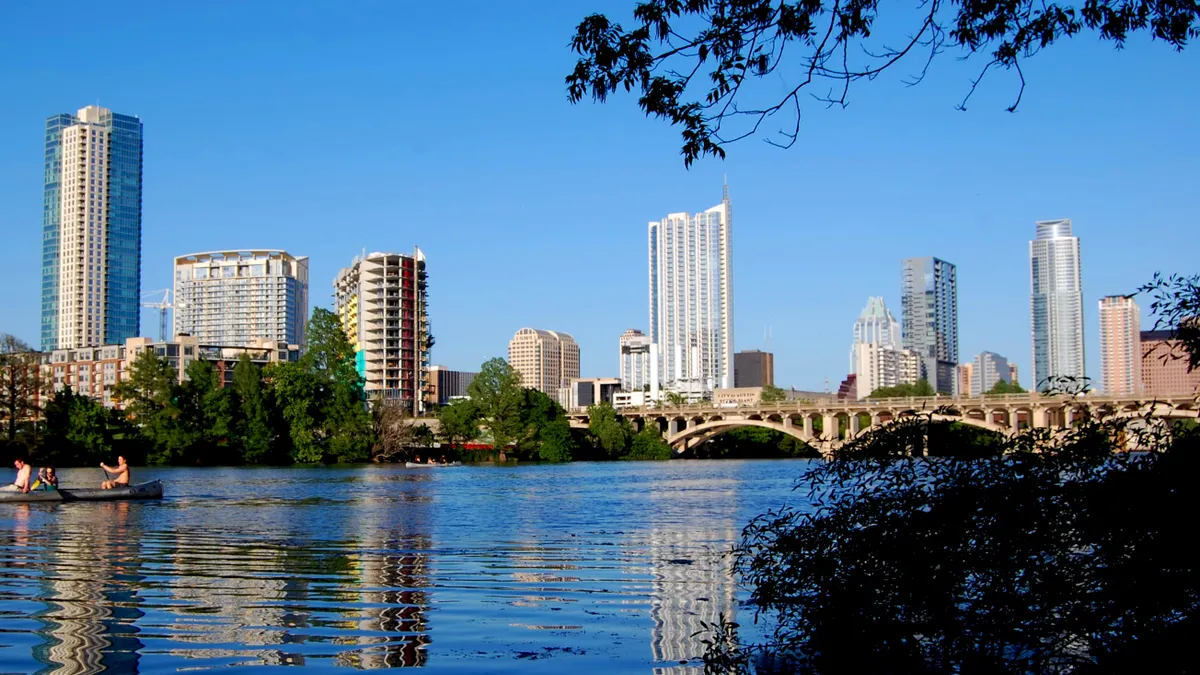UPDATE: Representatives from nine dockless bike-share companies — LimeBike, Mobike, Jump, Zagster, ofo, VBikes, Spin, Motivate and BCycle — joined a community forum hosted by the Austin Transportation Department (ATD) on Wednesday to propose a dockless bike-share program in the city, according to the Austin Monitor and KXAN.
The representatives boasted how dockless bike-share programs in other cities have increased low-cost transportation options and have enabled transit departments to access various user data in order to improve transportation infrastructure.
The Austin Monitor reports that there was some pushback on these pitches, particularly around data sharing. Gillian Gillett, San Francisco's director of transportation policy, attended the pitch session and warned fellow attendees that bike-share companies may try to monetize user data.
Ironically, ATD's transportation program manager also told the Austin Monitor that dockless scooters were not likely to be a part of a pilot demonstration, however Bird announced today the launch of its electric scooter service in the city. The success of this pilot may influence the development of a dockless bike-share program moving forward.
Good Morning Austin! #lovebird #enjoytheride pic.twitter.com/56LohEzQS1
— Bird (@BirdRide) April 5, 2018
ATD is expected to hold a number of community feedback sessions this month regarding the dockless bike pilot. Once the sessions are completed, the department is expected to draft the program and present a proposal by June.
Dive Brief:
- Austin is moving forward with its plans to develop a dockless bike-share program, according to the Austin Monitor.
- An estimated six dockless providers may participate in a community forum next week where they can educate residents about their business plans and ideas for a dockless system in the city.
- Last month, the city council gave the okay for bringing dockless bike-share to Austin, in addition to expanding the city's existing traditional bike-share program.
Dive Insight:
Austin is known for being a progressive city, but it's been slower on the uptake with dockless bike-share. Leaders have noted that part of the reason is watching the dockless difficulties unfold in Dallas.
Dallas became a hotbed of criticism for dockless bike-share because of the scores of bikes left in inappropriate places to create clutter. That prompted the city manager to issue a warning to dockless providers, telling them to clean up their mess. But dockless businesses note that Dallas allowed tens of thousands of dockless bikes from multiple providers onto its streets overnight, without creating a master plan or regulations. That led to customer confusion and inappropriate system use because they hadn't been adequately educated on the new type of bike-share.
Austin's leaders want to avoid that kind of chaos and thus are taking their time with developing a pilot. A couple of the dockless providers left a few dozen bikes around the city without permission last year, but the city put the kibosh on that and worked on establishing an official pilot.
Although launching a dockless bike-share program in Austin has taken longer than in other cities, the slow, regulated approach will likely prevent problems other cities have faced and set up the pilot for greater success.













